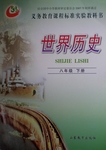题目内容
I still remember my first day in the U.S. very clearly. My friend was waiting for me when my plane landed at Kennedy Airport at three o’clock in the afternoon. The weather was very and it was snowing, but I was too excited to _. From the airport, my friend and I a taxi to my . On the way I saw the skyline(天际线) of Manhattan(曼哈顿) for the _time and I stared in surprise at the famous skyscrapers (摩天大厦)and their man-made . Helping me unpack(卸下包裹) at the hotel, my friend left and to return the next day.
my friend had left, I went to a near the hotel to get something to eat. Since(因为) I couldn’t speak a single of English, I couldn’t tell the what I wanted. I was very upset and started to make some , but he didn’t understand me. Finally, I ordered the same thing the man at the next table was . After dinner, I started to walk along Broadway I came to Times Square with its theatres, neon lights, and crowds of people. I didn’t feel tired, so I to walk around the city. I wanted to see _on my first day, although I knew it was impossible.
When I to the hotel, I couldn’t fall asleep, lay and thought about New York. It was a very big and amazing city with many high-rise buildings and streams of cars, and full of and busy people. I also decided right then that I had to learn to English.
1.A. hot B. warm C. cold D. cool
2.A. look B. listen C. enjoy D. mind
3.A. sat B. took C. rode D. used
4.A. home B. hotel C. office D. school
5.A. first B. one C. last D. only
6.A. satellites B. lakes C. beauty D. parks
7.A. advised B. liked C. Promised D. hoped
8.A. Before long B. Shortly after C. Soon D. Then
9.A. restaurant B. shop C. supermarket D. pub
10.A. letter B. word C. sentence D. phrase
11.A. boss B. cook C. waiter D. waitress
12.A. voices B. suggestions C. sounds D. gestures
13.A. looking B. ordering C. picking D. eating
14.A. until B. when C. before D. after
15.A. tried B. stopped C. decided D. continued
16.A. anything B. everything C. something D. some things
17.A. came B. went C. returned D. arrived
18.A. asleep B. awake C. afraid D. alive
19.A. noise B. voices C. streets D. places
20.A. say B. talk C. speak D. tell
1.C
2.D
3.B
4.B
5.A
6.C
7.C
8.B
9.A
10.B
【小题 11】C
【小题 12】D
【小题 13】D
【小题 14】A
【小题 15】D
【小题 16】B
【小题 17】C
【小题 18】B
【小题 19】A
【小题 20】C
【解析】
试题分析:本文讲述了作者第一次去美国旅行时的一些所见所闻所感,由于不会说英语造成了很大的困难,所以他决定好好学英语。
1. was snowing可知天气应该是寒冷的。故选C
2. D。 考查动词辨析。A.看;B.听;C.喜欢,享受;D.介意。根据前文的but I was too excited to _.中的but可知因为太过兴奋而不介意寒冷。故选D
3. a taxi:固定搭配。乘出租;C.骑;D.使用。因为take a taxi为固定搭配。故选B
4. me unpack(卸下包裹) at the hotel可知是将我带到了旅馆。故选B
5. stared in surprise可知应是我第一次来,故选A
6. (摩天大厦)and their man-made可知their指代的是摩天大厦,所以只有美符合语境。故选C
7.
8. went to可知是我一个人去的,所以是朋友离开之后。故选B
9. get something to eat可知是去餐馆吃饭。故选A
10.
【小题 11】C。考查名词辨析。A.老板;B.厨师;C.男服务员;D.女服务员。在餐馆都是有服务人员的,根据he didn’t understand me可知是男服务员。故选C
【小题 12】D。考查名词辨析。A.嗓音;B.建议;C.声音;D.首饰。根据前文可知他不会说英语,所以试图用手势使之明白。故选D
【小题 13】D。考查动词辨析。A.看;B.订;C.捡,挑;D.吃。根据前后文he same thing the man at the next table was . After dinne可知是这个男的正在吃的。故选D
【小题 14】A。考查连词辨析。A.直到..;B.当..时候;C.在..之前;D.在..之后。这个地方应该理解为我独自一人漫步所走过的路程,until可表示。故选A
【小题 15】D。考查动词辨析。A.试图;B.停止;C.决定;D.继续。根据上下文I didn’t feel tired, so I to walk around the city.可知因为不感到累,所以继续游城,故选D
【小题 16】B。考查不定代词辨析。A.任何事,常用于否定;B.一切;C.某些事;D.一些事。根据前文我想游遍全城,是为了看尽一切。故选B
【小题 17】C。考查动词辨析。A.come to:到达;B.go to:去;C.return to :返回;D.arrive at/in:到达。根据前文我是从旅馆出发的,所以这是返回到旅馆。故选C
【小题 18】B。考查形容词辨析。A.睡着的;B.醒着的;C.害怕的;D.活着的。根据前文I couldn’t fall asleep可知我睡不着,所以是保持醒着的状态。故选B
【小题 19】A。考查名词辨析辨析。A.噪音;B.嗓音;C.街道;D.地方。根据上下文streams of cars,和busy people可知充满了车流和人流,所以是有噪音的。故选A
【小题 20】C。考查动词辨析。A.说;B.谈论;C.说;D.告诉。说某种语言通常用speak,例如speak English。故选C
考点:考查记叙类阅读

 探究与巩固河南科学技术出版社系列答案
探究与巩固河南科学技术出版社系列答案高中阶段学习比较紧张,正确的学习方法尤为重要。下表显示了两位同学不同的学习方法请简述并发表你的观点。
学习方法 | 李华 | 王海 |
白天 | 上课专心听讲,尽可能经常向老师请教疑难问题. | 上课打瞌睡,漏掉了许多要点. |
晚上 | 花较少时间完成作业,早点休息,上课经常保持旺盛的精力. | 花较多的时间完成作业,熬夜学习,导致注意力无法集中. |
注意:1.词数:100~120,短文的开头和结尾已为你写好,不计入总词数。
2.短文需包括表中所有要点,内容可适当发挥,以使行文连贯。
3.参考词汇:参考词汇: attentively 专心 energetic 精力旺盛
concentrate on 集中精力于 effectively 有效地
Li Hua and Wang Hai are two students of Senior Three. Both of them work hard but they have different learning methods.
The following is a timetable in Shanghai Pudong International Airport.
Airline | Flight Number | Destination(目的地) | Departure | Gate |
Air Canada | 137 | Beijing | 10:12 a.m. | 24 |
Japanese Airlines | 320 | Tokyo | 10:30 a.m. | 18 |
British Airways | 405 | Paris | 11:00 a.m. | 20 |
Pan American | 226 | London | 11:20 a.m. | 12 |
Pan American | 12 | Beijing | 11:43 a.m. | 15 |
Air Canada | 178 | Tokyo | 12:32 a.m. | 21 |
CAAC | 289 | Hong Kong | 12:32 a.m. | 14 |
CAAC | 314 | Moscow | 12:45 a.m. | 18 |
British Airways | 230 | New York | 12:55 a.m. | 23 |
1.A man wants to take Flight 178 to Tokyo. Which gate should he go to?
A.14 B.28 C.21 D.18
2.Lisa is at gate 23. Where is she going?
A.Paris B.Beijing
C.Tokyo D.New York
3.Now it’s 10:40. Mary is at gate 20. Which airline’s plane will she take?
A.British Airway B.Japanese Airlines
C.Pan American D.Air Canada
4.Gate _______ is the busiest among all these gates.
A.23 B.18 C.24 D.15